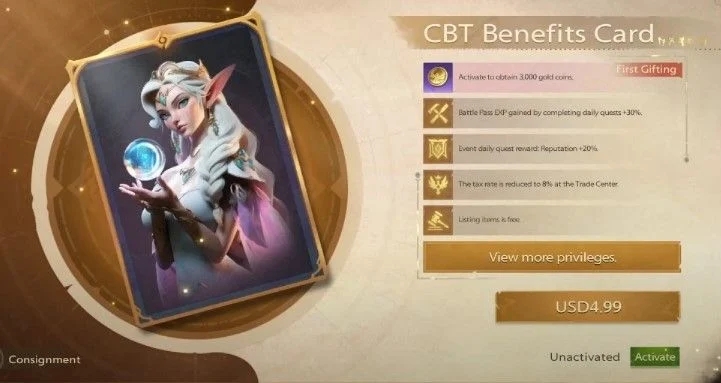Tarisland, an MMORPG touted as a “No Pay-to-Win MMO,” is embroiled in a controversy over its monetization model, with accusations that it is pay-to-win (P2W). This has caused significant uproar in the gaming community, with complaints surfacing on forums like Reddit, Discord, and YouTube, highlighting various issues.

The closed beta for Tarisland allowed thousands of players to test not just the game itself, but its monetization model. During this phase, players could spend real money on in-game items, which raised eyebrows as the game was promoted as being non-P2W. The game developers may have assumed that opening their shop during testing would be inconsequential and an easy way to generate revenue ahead of time. But players were not pleased with this approach.
The situation turned sour when players saw the contents of the shop and realized that the supposedly non-P2W game was actually quite focused on pay-to-win mechanics. Adding fuel to the fire was Tencent’s removal of the “No P2W” branding from their social media accounts, which raised questions among players. Specifically, during the closed beta phase, players were able to purchase a Closed Beta Benefits Card that granted in-game gold immediately for real money, as well as an Elf Messenger Bag that allowed for large in-game fund transfers. Players were apprehensive about these features, as they could encourage the activity of gold sellers who could use the in-game funds for purchasing the most powerful items on the Auction House.

It’s not difficult to see that buying and transferring gold using the benefits card and messenger bag could easily give players access to craft materials and other auction house items. While Tarisland’s cash shop doesn’t offer stat-boosting items that are undeniably P2W, many believe that the ability to buy gold and use it on the auction house to purchase such items is a technical workaround to hide P2W elements.
After receiving extensive backlash, the Tarisland developers issued a statement acknowledging the issues raised during the second CBT. They apologized for any confusion caused and sought to assure players that they were committed to creating a fair MMORPG, free of items that could unbalance the game. They explained that all items in the auction house were player-priced, intended to facilitate transactions that were beneficial for all players. However, they had also restricted player-to-player trading to combat gold farming and maintain a secure trading environment.
The developers acknowledged that the community feedback pinpointed several weaknesses in their approach. They pledged to refrain from selling character-enhancing items on the official store and to continue fine-tuning their monetization model to ensure an equitable gaming environment and positive experience for all.

However, the developers didn’t explicitly commit to changing the current monetization model in any way that would limit gold purchases. They stated that they would take players’ opinions into consideration, but instead of addressing the issue directly, they seemed more intent on rebranding their game.
While Tarisland gears up for its official launch, the developers, who initially aimed to create a stable, fair, and classic MMORPG experience, appear to be shifting their focus. This controversy highlights the fine balance that game developers must maintain in their monetization strategies. It’s important that developers understand their players and are mindful of how they present their games. Despite the current challenges facing Tarisland, we look forward to seeing how the game evolves ahead of its launch.









Leave a comment